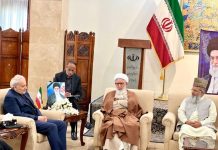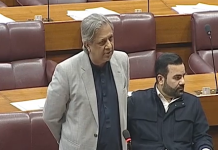ISLAMABAD : Traders across major cities of Pakistan observed a shutter-down strike on Wednesday against the government’s much-touted tax reforms, including the Tajir Dost Scheme. In March, the Federal Board of Revenue (FBR) introduced the ‘Tajir Dost Scheme’ to bring traders and wholesalers into the formal tax structure as required by the International Monetary Fund (IMF). The move had led to concerns and reservations among the traders. Earlier this month, the traders’ community, including Markazi Tanzeem-i-Tajran Pakistan and All Pakistan Anjuman-i-Tajran, announced a nationwide strike against the Tajir Dost Scheme as well as heavy taxation and inflated electricity bills.
have decried the tax challans to the tune of Rs60,000 — issued to small businesses and retailers, saying those registered under the scheme were promised they would not have to pay more than Rs1,200 in taxes.
The expansion of the country’s tax base will now pose a significant challenge for the PML-N and its coalition partner, the PPP, as the protesting traders have political affiliations with these parties.
Nevertheless, opposition parties — Jamiat Ulema-i-Islam-Fazl, Jamaat-i-Islami (JI), and the Awami National Party — have declared their support for the agitating traders.
Shutters in various parts of the country — including the metropolitan cities of Karachi and Lahore — remained closed as the call for strike from traders’ associations received an overwhelming response from the community. Iftikhar Ahmed Sheikh, president of the Karachi Chamber of Commerce and Industry (KCCI), had urged all its members to fully support Wednesday’s countrywide strike by closing their businesses.
Muhammad Kamran Arbi, president of the Site Association of Industry, has extended firm support to the traders’ strike. The Korangi Association of Trade and Industry and the Central Association of Tajran Pakistan have also announced their support.
The Pakistan Oil Tankers’ Association, in its statement issued on Tuesday, said it “fully supported” the call for a strike by the trader’s community and the JI.
The oil tankers’ body asserted the strike was the “voice of the country’s poor, helpless and destitute public against the heavy taxes and atrocious electricity bills”. The Karachi chapter of the Tehreek-i-Labbaik Pakistan (TLP) also endorsed the call for a strike, its chief Mufti Qasim Fakhri said in a statement.
Criticising the government for “enjoying privileges amid sky-high inflation”, Fakhri termed the imposition of taxes a “part of a foreign conspiracy”.
“Where are those who made promises to the public while seeking their votes?” the TLP leader asked.
JI Karachi chief Monem Zafar called the Tajir Dost Scheme (trader-friendly scheme) a “tajir dushman scheme” (traders’ enemy scheme).
Speaking to the media in Karachi, Zafar said: “You (government) burdened the salaried class with taxes and you burdened traders with taxes under the ‘tajir dushman scheme’.”
Slamming the government for being “enemies” of the common citizens through imposing harsh tax policies, the JI leader said, “Whether it is the Zardari family or the Sharif family, we do not accept these policies.” In Lahore, shops on Hall Road, where the JI has set up a camp to mobilise traders and the general public, as well as on Mall Road, remained closed as traders observed the strike.
In KP, traders and transporters across the Malakand and Hazara divisions observed a shutter-down and wheel-jam strike against the heavy taxes.
Rallies in various cities of the province were also carried out with the support of the JI.
Abdur Rahim, the divisional president of a Malakand trade union, highlighted that the division was merged with Pakistan in 1969 under an agreement that exempted it from all kinds of taxes. However, the recent imposition of taxes was beyond his understanding, he said.
Rahim further said that the residents of Malakand were paying huge taxes indirectly through inflated utility bills and mobile prepaid services.






















